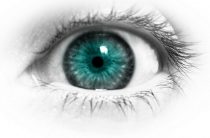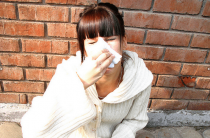And so, you suffer from an allergic disorder. Modern medicine offers many remedies to eliminate its symptoms and none to eliminate the cause. But this is the very essence of any treatment: eliminate the cause and the disease will go away. It is a mistake to consider a person as a biological material and his illnesses as deviations of an exclusively material nature in the performance of biological functions.
Certain attitudes of our mind can also influence the occurrence of diseases in our body. This issue deals with a special science - psychosomatics. The nature of the psychosomatics of diseases is determined by the features of the higher nervous activity of a person, his character, perception, attitude, attitude towards himself and others. Alternative medicine generally assures that all diseases begin in the soul, and only after that they manifest themselves in the body.
The essence of psychosomatics
Traditional medicine is less categorical on this issue, but nevertheless recognizes that a number of diseases are of a psychosomatic nature. One of these diseases is allergies. Within the framework of this disease, its factors are often not only physiological disorders, but also certain mental reactions, experiences, expectations, and peculiarities of perception.
Allergic disease is a hypersensitivity of our immune system to certain environmental components that do not pose a danger to it.
Emotional blockade: a person suffering from allergies often has an enemy at his side, with whom he is forced to constantly contact. Naturally, this is also expressed at the level of our body, because it is directly connected with our consciousness, which is expressed in the appearance of an allergy that has a psychosomatic cause. An allergic person is not only a person suffering from allergies, it is also a certain type of personality. A person suffering from allergies very often evaluates his successes and achievements based on the opinions of others and tries to adapt to it. An allergic person is psychosomatically very dependent on who and what will say about him, which is a common cause of allergies, since this has a great nervous experience as a consequence. Resentment is a characteristic feature of an allergic person, so they try to psychologically protect themselves from those who, in their opinion, mock or try to mock them. An allergic person is suspicious and incredulous. He simply cannot accept the fact that he can be loved, appreciated and respected.
Internal conflict is often the psychosomatic cause of allergies. A person suffering from allergies experiences internal contradictions. He has some aspirations or desires that one part of his personality finds unsatisfactory. As a result of this, psychosomatic tension appears, which causes allergies. A frequent reason for the development of this type of personality is the constant disagreement of the parents, which subsequently affects the child. As already mentioned, an allergic person is dependent on outside opinion, and therefore needs himself. Illness may be an unconscious manifestation of this thesis. This is especially true in relation to asthma attacks, with allergies. In this case, the allergic person calls people into his life, being in a helpless state.
Mind blocking. Often the cause of the disease, at the psychosomatic level, is a certain life situation. The patient experiences an ambivalent attitude to this situation, as a result of which internal contradictions are growing, expressed in the appearance of allergic reactions, at the bodily level. The reason for allergies can also be that a person deliberately limits himself in many ways. The body seems to accept the ascetic moods of its owner, also protecting itself.
Allergy sufferers suffer from self-doubt. It seems to them that they cannot attract the attention of people to themselves, except by being sick. Often this has been going on since childhood. It is understandable, because the child really wants to attract attention. But it is desirable to leave these complexes there. Understand that the people around you love you the way you are. You do not need to be sophisticated in any way, because you are already given the due attention that you certainly deserve.
The reaction to animals may be associated with a person's fear of external aggression. In this case, you need to study yourself in more detail. It is unlikely that the people around you somehow show their aggressive moods towards you. Most likely, you suffer from excessive suspicion. You need to relax and understand that no one wishes you harm.
Causes of certain types of allergies
This disease can symbolize a deep rejection of certain phenomena, on an emotional level. The allergic person tries to fight what is happening in his life by pushing it out of his mind. As a result, certain emotions try to find a way out at the psychosomatic level, through our body, while becoming the causes of an allergic disease. This disorder, in this case, is a continuation of our struggle with those phenomena that we are trying to prevent from penetrating into our lives. A patient with this disease, first of all, must understand what exactly he is so diligently avoiding and accept it. After all, often, we ourselves will come up with and exaggerate our problems. To really get rid of allergies, in this case, you can, if you accept your fears, go a certain way with them. Only after such a close acquaintance, they will cease to frighten us.
People who suffer from allergies have a very sensitive psyche, taking events that happen to them too close to their hearts. The nature of allergic reactions is directly related to the mental world of a person, which facilitates the search and elimination of the psychological causes of allergies.
- The reaction to antibiotics is a subconscious desire to return to the natural state, to the original nature and essence of things. Antibiotics are literally “life killers”. Often the psychosocial factors of drug allergy are a protest against the fruits of modern civilization, which turns out to be detrimental to nature. Such people need to go to a resort in the virgin corners of our nature more often in order to find solace for their hearts and healing for their bodies.
- The reaction to dust is a pronounced shield from what a person perceives as "dirty", but nevertheless has a pronounced attraction to it. It could be gambling or a hidden attraction to aggressive sports, or it could be certain sexual quirks. In addition to such subtle subconscious reasons, dust sensitivity may be the result of a person’s increased disgust. Such a person has increased requirements for cleanliness and accuracy, his intolerance to the slightest pollution spreads to the body and becomes the cause of the disease.
- Reaction to plant pollen - the cause of this is often disorders in the sexual sphere. Plant pollen is a symbol of fertilization, birth, conception of a new life. In a pregnant woman, sensitivity may be due to fear of having a baby. It is necessary to understand that children are not fears and disappointments, but the greatest joy of life. Also, in addition to sexuality - plant pollen, this is change and the beginning of a new cycle. People who are allergic to pollen are terribly conservative - they are afraid of change, considering it the main enemy of a stable lifestyle. Such people are strongly encouraged to face their fears, face to face. Change yourself more often. You can start letting them in your life with the simplest things: take an unusual route to work, go on a trip, go to an institution that you have not been to before. Get used to the fact that everything in life changes, and trying to hold on to islands of stability means rejecting the new perspectives that change will give us.
- Reaction to animal hair - often, the cause of an allergy to animal hair is a disorder in the sexual sphere. Animals represent the aggressive, primal component of sexuality, with powerful and wild passions. Some people try to consciously suppress this aspect of their lives. This may take place as a result of not wanting to be rude to your partner. Such people need to admit that it is impossible to suppress the animal nature in us without harm to our personality and give vent to our gross sexual desires. In addition to the sexual sphere, sensitivity to animals may indicate that a person has had a negative experience from contact with animals. Basically, the consolidation of this psychosomatic mechanism occurs in early childhood, since during this period a person is much more sensitive to the experience that is happening to him.
For example, when overweight, a person treats food as a source of calories, and therefore, to his enemy. This is expressed in the rejection of food, which affects the entire body. As a result, some foods become the cause of an allergic reaction, as the body continues the thoughts of its owner at the bodily level.
Control as a source of disease
An allergic person is a person who tries to keep their feelings and emotions under complete control. Often, this is a person of high moral qualities, who suppresses envy, anger, irritation. Symptoms are, in this case, the consequence of the rejection of certain aspects of life that inevitably arise before an allergic person. Such a person, without committing any unkind acts, is nevertheless so picky about himself that he already blames himself for the thoughts themselves. It must be understood that even a self-decent person can have unpleasant thoughts. All the best human qualities lie in this, that these thoughts do not turn into actions.
Hypersensitivity arises as a result of the subtlety of the mental organization of the patient. Many people try only to increase their enjoyment, while forgetting that it is necessary not only to give, but also to receive. For these people, the main psychosomatic factor is selfishness. Selfish people are very vulnerable and with great pain perceive all insults against them. They believe that the whole world converges on them like a wedge, which means that other people, even with an innocent, at first glance, statement try to offend them.
Negative moods as a source of illness
The presence of malevolent thoughts always leads to the emergence of internal conflict. A certain rejection means that our soul does not accept the world around us. Such a person does not accept people, animals, phenomena of the surrounding world, since he considers them exclusively from the negative side. Such people have an extremely sensitive spiritual body, which irritably reacts to the spiritual nature of the surrounding world: plants, animals, insects.
Anger, irritation, dissatisfaction with oneself - all this nourishes the allergy and only makes its psychosomatic manifestations stronger. You also don't need to be afraid of the environment. Understand that initially our universe is kind to us, it is our fantasy, our fears and complexes give everything an alarming shape. When you blame someone for your troubles, you only get great suffering, because in this case, your thoughts themselves become a beacon for adverse consequences. Do not accumulate anger inside yourself, it is better to forgive your offender, because life goes on. The best solution would be not aggression, but rather the establishment of peace in the soul, because it is in its absence that the snag of your illnesses.
Illness can be convenient for the patient, despite all the inconvenience that they bring. This disease allows you to solve many problems: take a day off from unpleasant work, stay at home and not see an unpleasant person, arouse sympathy for yourself. Only one thing can be advised to such a person - not to deprive yourself of contact with the outside world and solve problems, and not distance yourself from them.
Psychological factors
Physiology and mental activity are directly related. Numerous diseases are programmed by ourselves, through the brain, which is a kind of bridge between our mind and body. Certain factors are the impetus for the emergence of psychosomatic diseases, which are caused not by our body, but by our psychological attitude. Consciousness has the same full-fledged influence on our body as external factors. Psychologists have long identified such psychosomatic factors as:
- increased aggressiveness
- anger
- pangs of conscience
- increased anxiety
- bad memories from the past
In order to get rid of the disease, it is necessary to see the cause of this disease not only in the allergens themselves, which are only a consequence, but much deeper - in the processes that occur in our psyche. Life is so arranged that a person cannot avoid negative states. However, he is able to change the way he relates to these phenomena. Understand that events are neutral, in themselves, and only we fill them with a certain meaning. Even the worst events can be filled with good meaning.
Psychosomatic factors of different types of allergies:
- Allergy on the face: the face is, so to speak, a representative of our internal state, in the outside world. Symptoms on the face appear when the patient constantly experiences nervous tension, being in stressful situations.
- Allergy on the hands, according to the psychologist, is due to the fact that the patient has experienced mental trauma or suffers from depressive disorders.
- An allergic reaction in children can manifest itself as a psychosomatic consequence of conflicts in the family. Also, an allergic reaction can be a subconscious attempt to attract the attention of parents.
Allergic symptoms and nervous disorders
The victims of psychosomatic illness are people whose character traits are highly developed such qualities as: suspiciousness, resentment, irritation, hidden aggression. Suspicious people often experience anxiety, a harmless change of scenery or team is perceived by them with wariness, literally “with hostility”. Constant stress impairs the functioning of the immune system, which results in the occurrence of allergic reactions.
Psychosomatic causes of allergies:
- increased anxiety, exaggeration of the degree of danger of certain phenomena
- lack of normal rest and relaxation
- increased level of aggressiveness
- isolation and isolation, rejection of people















